#colm tóibín
Text
John Updike vs. Gay Literature
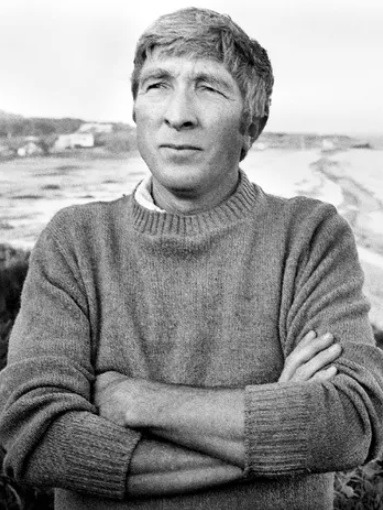
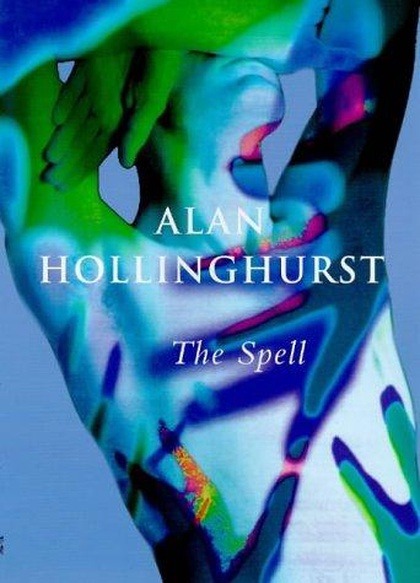
On May 23, 1999, John Updike published a review of The Spell in The New Yorker magazine. Written by Alan Hollinghurst, the novel is another of his tales of the gay underworld, an attribute that clearly displeased Updike:
The novels of the English writer Alan Hollinghurst take some getting used to; they are relentlessly gay in their personnel, and after a while you begin to long for the chirp and swing and civilizing animation of a female character. Save for the briefly and reluctantly glimpsed sister or mother, there are none.
Boredom swoops in without hetero clutter to obstruct its advent.
Novels about heterosexual partnering, however frivolous and reducible to increments of selfishness, social accident, foolish overestimations, and inflamed physical detail, do involve the perpetuation of the species and the ancient, sacralized structures of the family.
Perhaps the male homosexual, uncushioned as he is by society's circumambient encouragements to breed, feels the lonely human condition with a special bleakness: he must take it straight.
(Full review)
The backlash, as The New York Observer reported, was almost immediate:
“It really feels like an attack,” said Angels in America playwright Tony Kushner.
Writer and activist Larry Kramer circulated an e-mail alert among gay writers on May 31, with certain of Mr. Updike’s lines highlighted.
Novelist Sarah Schulman, who is a lesbian, said she wrote a letter to The New Yorker “the second I read the piece. It was so outrageous.” Craig Lucas, the writer of the movie Longtime Companion, also wrote a letter. “What he basically wanted to do is turn up his nose to distasteful sex,” he said. “This coming from the author of Couples! The idea that heterosexual sex is ‘sacralized,’ in his absurd phrase.”
Mr. Kushner thought Mr. Updike knew what he was doing. “I have a suspicion that he thought he was being cute and naughty.”
Mr. Kushner said Mr. Updike’s review “represents a kind of genteel tradition of disdain for homosexuals,” that has long been present at the magazine, going back to E.B. White and James Thurber.
So far, none of the letters have appeared in the magazine; New Yorker editor David Remnick didn’t return calls for comment. A New Yorker spokesman said, “It’s our understanding that Hollinghurst was not displeased by the review.”
Asked about the controversy, Updike seemed to miss the point of the criticism:
He said he had never read Mr. Hollinghurst before, and that when he did, this was his reaction. “As with all books that you are reviewing, you try to give your impression of the atmosphere within the book, which seemed kind of gloomy and pointless to me,” he said. “So I’ll just have to withstand whatever letters come.”
It’s not like he wanted to make generalizations about homosexuality. “I’d be happy not to discuss it,” he said. “Hollinghurst made it kind of tough. It makes it the unavoidable topic of discussion. It’s all about it. And for me to avoid his own emphasis would certainly be not doing my reviewer’s job.”
Colm Tóibín, another notable gay author, further bashed Updike’s views on homosexuality:
If you look at it carefully, that view of his will eventually eat into his reputation. Because his own elaborately confident and super-developed heterosexuality is actually an impediment to the proper writing and it eats at his sentences at times and it eats at his books… If you start reading Updike very carefully you start reading the astonishing boasting about sexual life which I found much more offensive than he does Hollinghurst’s book.
Years later, Hollinghurst himself spoke about the review:
Well, it was deplorable in various ways, but I also remember being very amused by it. There was this person who had gone to rather extraordinary lengths in his details of heterosexual sex and for whom the analysis of sexual behavior seemed to be so fundamental to his work as a novelist. But who was giving the impression in this review that everything he knew about homosexuality he gleaned from my novels, like he had never come across it in real life at all. I thought it was absolutely extraordinary, therefore so absurd, the old way he put it about the animating chirp of the female presence or something that he so missed in my books. It was terribly silly. It showed that he had chosen to emphasize his own failure with this large and interesting aspect of human behavior.
#john updike#alan hollinghurst#tony kushner#colm tóibín#literature#lit#gay literature#lgbt literature#lgbtq literature#history#gay history#lgbt history#lgbtq history#gay books#gay fiction#gay#lgbt#lgbtq#homophobia#books#booklr#1990s
15 notes
·
View notes
Text
[Baldwin’s] tone did borrow something from his preacher days: it was fearless and urgent, combining a concern about public policy and public attitudes with a probing yet oddly intimate concern with the dark and uncharted spaces within the self. […] His voice, so stylish, insisted that the language - English - in all its nuance and subtlety belonged to him, just as America in all its cruelty and hatred belonged to him too.
Colm Tóibín in the introduction to James Baldwin’s Another Country (2001, Penguin edition)
66 notes
·
View notes
Text
Everywhere he went, he left behind in some attic of the mind an opposite self, recently discarded.
– introduction by colm tóibín to de profundis and other prison writings by oscar wilde (penguin books, 2013)
#quote#bleuetfane#oscar wilde#de profundis#colm tóibín#penguin books#classics#english literature#english lit#irish literature#victorian literature#1800s#1880s#1890s#xix century#the picture of dorian gray#quotes
26 notes
·
View notes
Text

Director John Crowley, Domhnall and Saoirse Ronan on the set of Brooklyn (UHQ pic).
The book sequel Long Island’ll be out on May 7th in the US and on the 23rd in Europe.
Looking very forward to this! ❤️
8 notes
·
View notes
Text
twas a gift to hear this human read out loud

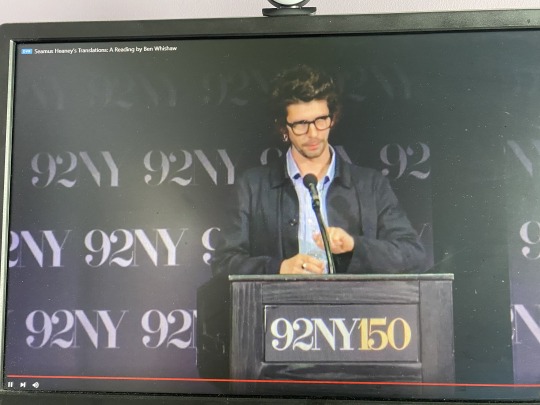

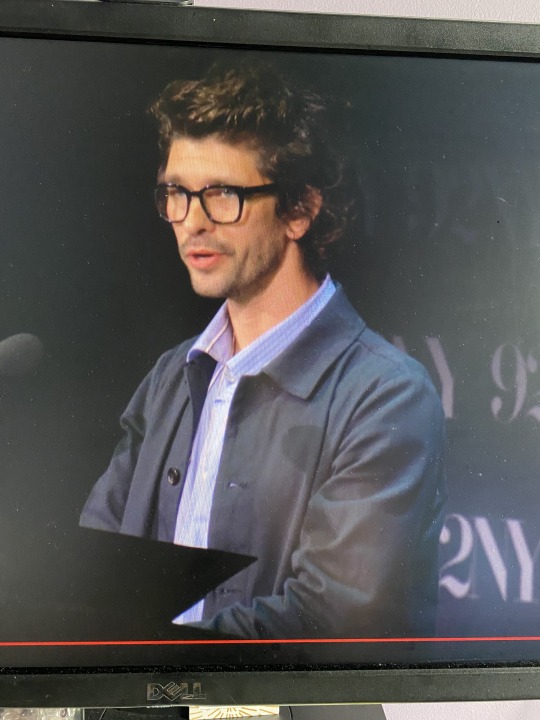


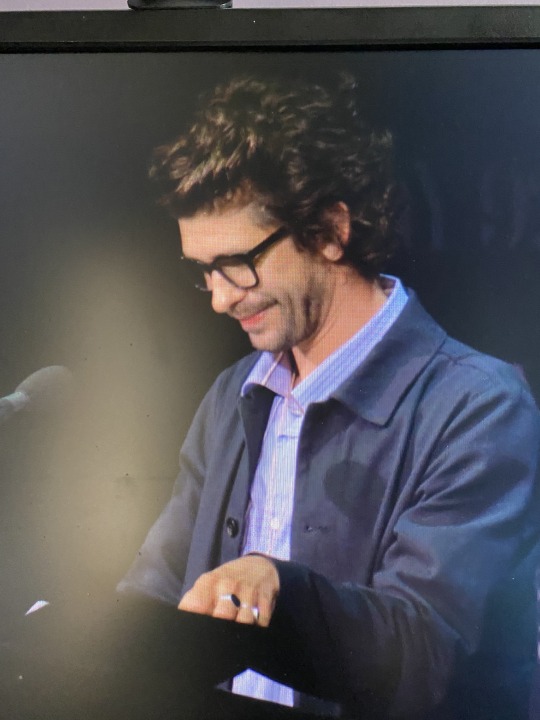
Back in my mid-twenties when I decided I would, in fact, go to university after all, I studied history, the sciences, and educational theory w/a smattering of art. Very little literature, minimal poetry. My lifelong self-directed education on poetry has been, at best, cAsUaL. Which means I came to this experience with so.little.knowledge of Seamus Heaney or his work. WOW. The combination of Heaney's words + Ben's voice was a most excellent morsel to whet my appetite for more.
TY @amongthejumbledheap for posting about this in person + virtual event. I never would have known about it if not for your post. 💜 I sipped some citrusy-mint-water + thoroughly enjoyed the experience.
#learned a great deal - both head + heart knowledge#was moved to tears a few times#loved listening to ben's voice + watch his expressions#omg the laments?!!!#pushkin's the civil power?#and the bit he read at the end?! (i think it's a chorus he wrote for philocetes which had current day political resonance)#beautiful#seamus heaney#translations#dramatic interpretation#adapted for the stage by novelist colm tóibín#colm tóibín#ben whishaw#92ny150#poetry#thank goodness for virtual performances#yep can't tell you much about poetry but i have read SOME#if you want to talk organisational change or leadership development (in broad terms) THOSE are topics i have studied 😉#personal
39 notes
·
View notes
Text
COLM TÓIBÍN
Restlessness: A Syllabus
I am interested in texts that are pure voice or deal with difficult experience using a tone that does not offer relief or stop for comfort. Sometimes, the power in the text comes from powerlessness, whether personal or political. Sometimes, death is close or danger beckons or violence is threatened or enacted. Sometimes, there is a sense of real personal risk in the text’s revelations. Sometimes, there is little left to lose. All the time, the tone is incantatory or staccato or filled with melancholy recognitions.
Euripides, Medea
Sophocles, Electra
Sophocles, Antigone
Sylvia Plath, Ariel
Louise Glück, The Wild Iris
Anne Carson, Autobiography of Red
Juan Goytisolo, Forbidden Territory
Joan Didion, A Book of Common Prayer
Oscar Wilde, De Profundis
Nadine Gordimer, The Late Bourgeois World
Ingmar Bergman, Autumn Sonata
John McGahern, The Barracks
Béla Tarr and Ágnes Hranitzky, The Turin Horse
Doris Lessing, The Grass Is Singing
J. M. Coetzee, Age of Iron
Béla Bartók, Bluebeard’s Castle
Constance Debré, Love Me Tender
7 notes
·
View notes
Text
Threads of connection: Colm Tóibín/Ha Jin
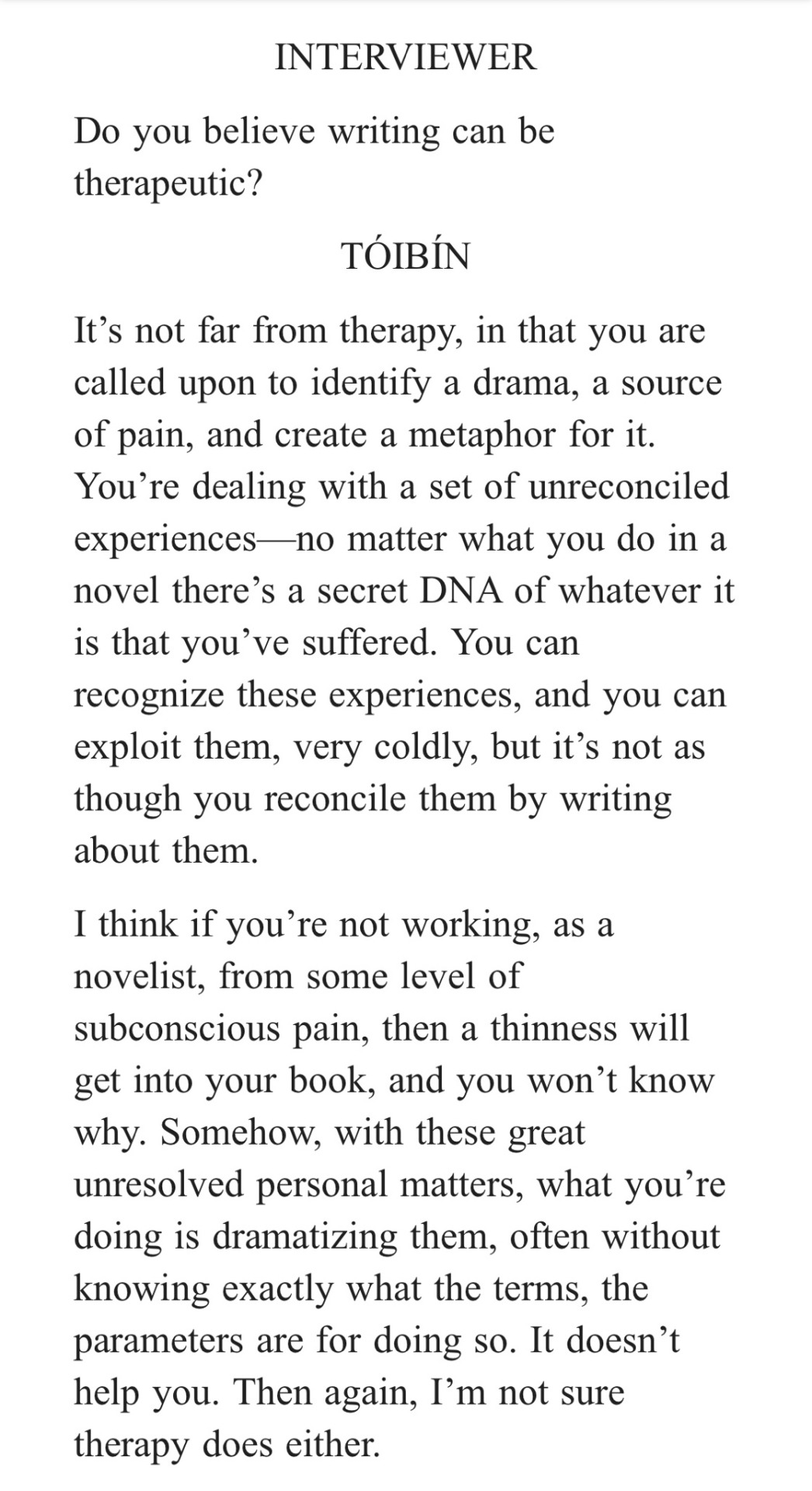
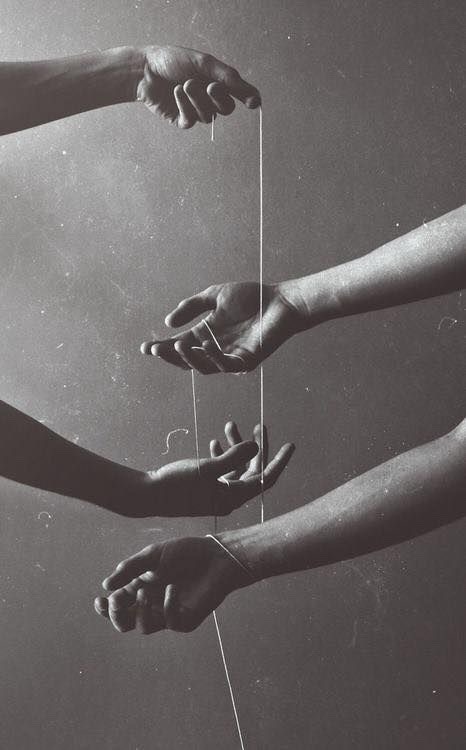

33 notes
·
View notes
Photo
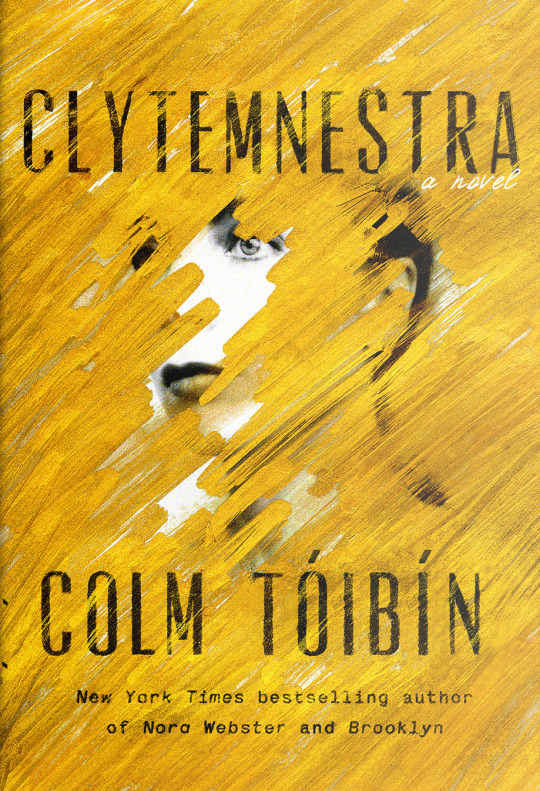
Unused cover for
Clytemnestra
By Colm Tóibín.
Design by Michael Morris.
2 notes
·
View notes
Text
“In the last stanza, the poet called on his lover to live with him forever, thus resisting time, moving together into eternity.”
Colm Tóibín, The Magician
#the magician#colm tóibín#quotes#queer fiction#love quotes#quotes about love#quotes about life#life quotes#quotes to live by#quote of the day#love qotd#love#poetry#poet#lover#gay#lit fic#thomas mann#historical fiction#quote#romantic#romantic quotes
3 notes
·
View notes
Text
colm tóibínin house of names (2017) luettu:
uudelleenkerronta klassisesta antiikin tragediasta: keskeisinä hahmoina klytaimestra (clytemnestra), agamemnon, orestes sekä elektra.
ei oo todellakaan tarpeellista tuntea alkuperäinen myytti; itselläkin oli vain hämärä mielikuva siitä mitä siinä tapahtuu, voi olla jopa antoisampaa sukeltaa kirjan tarinaan ilman ennakko-odotuksia!
kirja kostuu osista, joissa seurataan perhetragediaa, koston ja himon kierrettä eri henkilöiden näkökulmista. on vaikea olla samaistumatta kaikkiin hahmoihin.
yllätyin siitä miten paljon pidin orestekseen keskittyvistä osista: olin jotenkin etukäteen olettanut että hän on teoksessa se tylsin henkilö. mutta orestes toikin tarinaan jännän wanhan ajan seikkailukertomusmeiningin, jossa hemmoteltu hienostopoika joutuu aikuistumaan selviytymisen ehdoilla.
rakastin erityisesti kuvausta siitä miten jatkuvat järjettömät sodat vaikuttivat ympäröivään miljööseen ja tavallisten ihmisten arkeen. maaseudun autioituminen ja näivettyminen konflikteissa on yksi surullisimmista ilmiöistä mitä historiaa tutkiessa törmää, ja tässä paikkojen kuvailu kouraisi oikein syvältä.
jos teoksen jotenkin tiivistäisi, niin se olisi miten väkivalta jättää jäljet sukupolvien päähän - alkaen agamemnonin päätöksestä uhrata tyttärensä. 5/5
4 notes
·
View notes
Text
"He has learned to smile instead of snarl, but he is still all instinct, all nails and teeth."
House of Names, Colm Toibin
2 notes
·
View notes
Text
SHOW AND TELL
…An elderly man wears a mask; his walk is Sprightly, his movements brisk. I catch His watery eye for a watery moment. Without stopping, all matter-of-fact, He says: ‘Someone told me you were dead.’” — Colm Tóibín
IMAGINE YOU ARE TEN OR FIVE. You have a sense of who you are; it crept up on you so you don’t really recall not feeling this. Then suddenly you are 20. Now, who you are matters less…

View On WordPress
#aging#anne bradstreet#art#“Sailing to Byzantium”#capitalism#career#Colm Tóibín#commodification#defense mechanisms#group therapy#loss#magical realism#marketing#new objectivity#reminescence#retirement#self help#wisdom
5 notes
·
View notes
Text

Great, engaging read, but had to sleep on this book before I could decide what I thought of the ending. In the morning, I was satisfied. It’s surprising & it works. I definitely love reading about people my age for once who face our complications. It’s hard to be true to ourselves when we have both the older and the younger generation to both care about and appease. And remember, protagonists aren’t always the hero, nor should they be.
0 notes
Text
Colm Tóibín: Kngwarreye, la artista indígena australiana que empezó a pintar lienzos a los 80 años
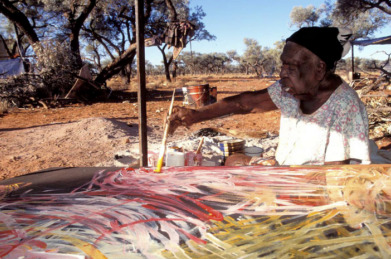
View On WordPress
0 notes
Text
Thomas Mann: On writing
“A writer is a person for whom writing is more difficult than it is for other people.”
—Thomas Mann.
View On WordPress
0 notes
Text
Jeśli Klaus przypomina kogoś z rodziny, pomyślał, to swoją ciotkę Lulę. Cechowały ją taka sama rzutka wyobraźnia i wieczne niezadowolenie. Nie interesował jej zwyczajny dzień, tylko dzień w przyszłości, kiedy wszystkie jej problemy rozwiąże małżeństwo. Gdy natomiast wyszła za mąż, nie mogła się doczekać, kiedy uszczęśliwią ją dzieci. Po urodzeniu córek myślała o większym mieszkaniu lub całkowitym przemeblowaniu głównych pokoi albo o wczasach. Pamiętał, że w dzieciństwie Lula przeskakiwała środek książki, żeby przeżyć od razu emocje z końca.
— Colm Tóibín
0 notes